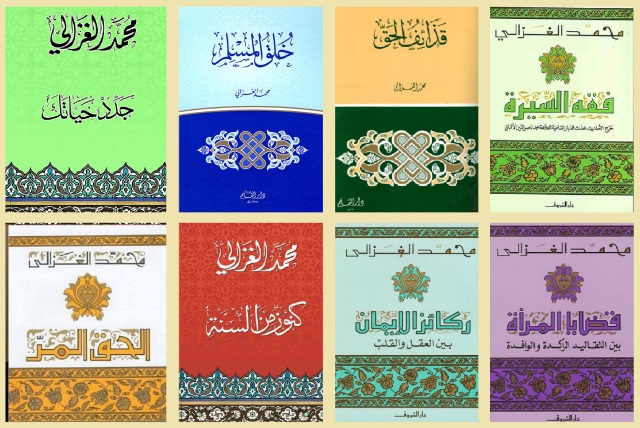VIDEO: Mohammed Al-Ghazali And His Thoughts for Elevating Islam
Mohammed al-Ghazali was born on September 22, 1917, in Egypt’s Beheira Governorate. His father, Sheikh Ahmed al-Saqqa, was a pious merchant.
Mohammed enrolled in their village’s school to learn Arab literature and foundations of Islamic sciences and after a while he managed to memorize the entire Quran. He then went to Alexandria University, affiliated to Al-Azhar, and started learning religious sciences.
He then enrolled in Al-Azhar University and graduated four years later in 1941 while he was 26. He attended courses of masters such as Sheikh Mahmoud Shaltut and Hassan al-Banna. Mohammed was mostly affected by thoughts and views of al-Banna.
After graduation, al-Ghazali started teaching at Al-Azhar’s faculty of religion foundations as well as its “Arabic and Islamic Studies Center”.
The Ministry of Awqaf appointed al-Ghazali as the Imam and Friday prayer’s leader of Cairo in 1943 and after a while was employed by the Ministry, acting as the body’s representative in Islamic propagation affairs. One of the duties of al-Ghazali in the new position was to supervise the affairs of mosques. During these years, the Ministry sent him to Saudi Arabia and Qatar to both perform propagation duties and teach in universities affiliated to Al-Azhar.
As an active member of the Society of Muslim Brotherhood, al-Ghazali was arrested in 1949 on charges of cooperation with the society. Along with a host of other members, he was transferred to a prison in the city of El Tor.
His first foreign trip was the one to Palestine. He got acquainted with the life and suffering of Palestinian people. Visiting Khan Yunis and Rafah camps in Gaza, he saw the problems of Palestinian.
After the eruption of a dispute with Anwar al-Sadat government, al-Ghazali travelled to Saudi Arabia and then departed for Qatar, teaching at one of the Al-Azhar branches for five years. He then, upon a proposal by the Qatari University president, departed for Algeria.
Decades of his experience in teaching at different universities in Egypt, Saudi Arabia, Algeria, and Qatar led al-Ghazali to conclude that the path to salvaging the Islamic Ummah and compensate the backwardness lies in returning to Quran and abandoning anti-Quran superstitions.

He has penned valuable books including The Prophetic Sunna: Between the Jurists and the Hadith Scholars that directs serious criticism toward fake hadiths in Sahih al-Bukhari and Sahih Muslim. In one his other major works titled Our Intellectual Heritage, al-Ghazali points to the need to return to Quran and match any issue with Quranic criteria.
After the Islamic Revolution in Iran, al-Ghazali visited Iran in 1985 upon the invitation of Ayatollah Jannati and addressed a conference on Islamic thoughts. He offered an article titled “the mission of the best nation”, explaining the general ideas of his reformist thoughts.
After years of efforts for Islam, Muslims’ unity, and fight against colonialism, he passed away of a heart attack on March 9, 1996, while he had travelled to Riyadh to address a conference about Islam and the West. He was laid to rest in Al-Baqi' cemetery, Medina.



